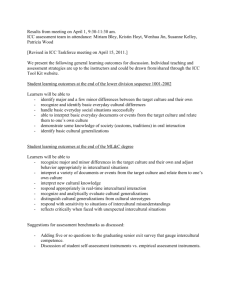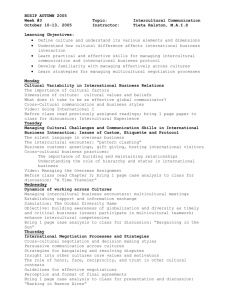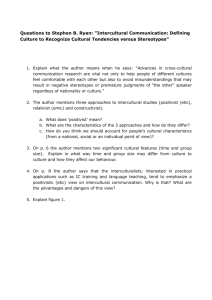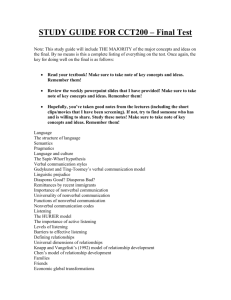Chapter 1 - Oxford University Press
advertisement
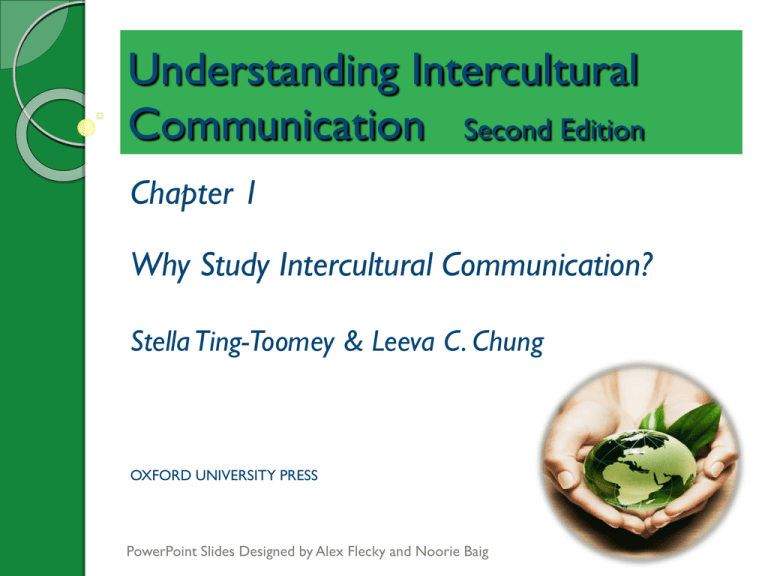
Understanding Intercultural Communication Second Edition Chapter 1 Why Study Intercultural Communication? Stella Ting-Toomey & Leeva C. Chung OXFORD UNIVERSITY PRESS PowerPoint Slides Designed by Alex Flecky and Noorie Baig TODAY’S MENU I. Practical Reasons to Study Intercultural Communication (ICC) II. What is Culture? I. Why Study Intercultural Communication? • • • • • • I. Some Practical Reasons to Study ICC A. Adjust to Global Workplace Heterogeneity B. Adapt to Domestic Workforce Diversity C. Engage in Creative Multicultural Problem Solving D. Comprehend the Role of Technology in Global Communication I. Some Practical Reasons to Study ICC E. Facilitate Better Multicultural Health Care Communication F. Enhance Intercultural Relationship Satisfaction G. Foster Global & Intrapersonal Peace H. Deepen Cultural Self-Awareness and Other-Awareness cont’d. Jeopardy Time ! ~ To see some facts related to the historical landmark of reaching 7 billion people on planet Earth, click here. ~ To see a video called “Seven Billion: Are You Typical?” click here. II. What is Culture? • • • • • • II. Culture: A Learned Meaning System Culture is: a learned meaning system consists of patterns of … traditions, beliefs, values, norms, meanings, and symbols that are passed on from one generation to the next & are shared to varying degrees • by interacting members of a community. • • • • Culture is like an Iceberg: Culture: An Iceberg Metaphor Surface-level culture: Popular culture Can you give examples of current U.S. popular culture icons that are different from the ones listed in the textbook? • • • • Culture: An Iceberg Metaphor Intermediate-level culture: Cultural norms How would you introduce yourself: To your professor? To your romantic partner’s friends? Deep-level culture: Culturally shared traditions How would you explain common U.S. traditions to a visitor from another culture unfamiliar with them? Parting Thoughts… Culture is the widening of the mind and spirit. ~ Jawarhalal Nehru

